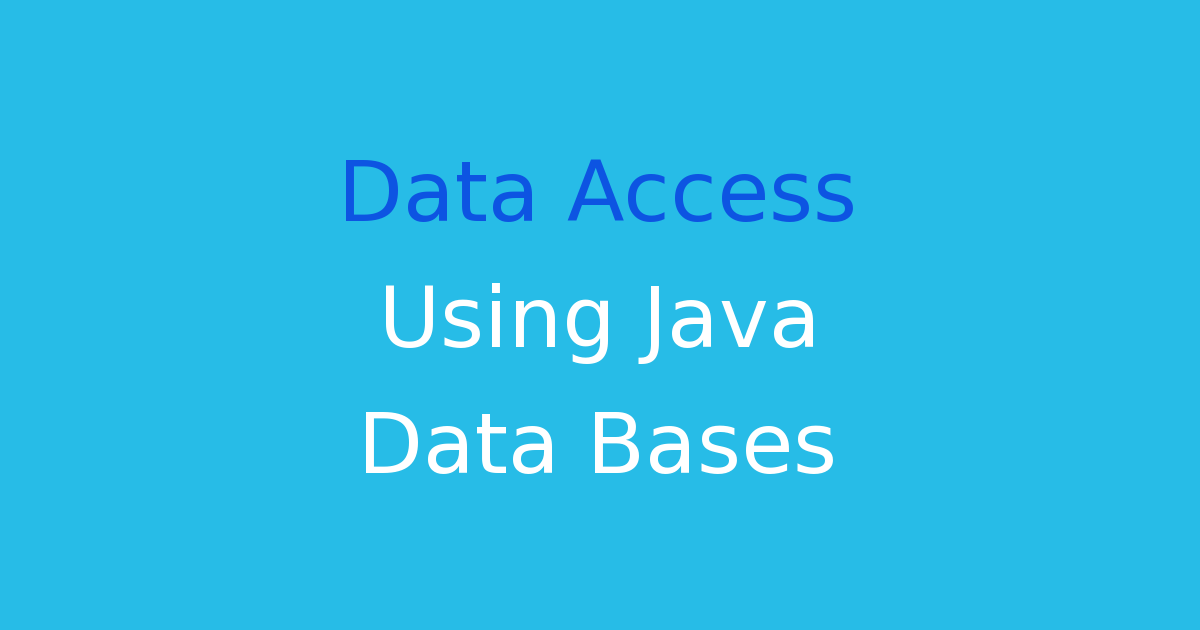Using Java to access data from databases.
Data Access Using Java Databases
Introduction
With the advancement of technology, data plays a crucial role in almost every industry. In the field of engineering, especially in the Bachelor of Technology program, students often work with large datasets to analyze and solve complex problems. Accessing and manipulating this data efficiently is essential for the success of any project. In this academic project report, we will focus on the topic of data access using Java databases.
Problem Statement
The traditional method of accessing data from databases in Java involves using JDBC (Java Database Connectivity). While JDBC is a powerful tool, it can be complex and cumbersome to work with, especially for beginners. Students often face challenges in writing code to connect to databases, execute queries, and retrieve results. This leads to inefficiencies and delays in project completion.
Existing System
In the existing system, students rely on JDBC for data access in Java applications. This involves writing boilerplate code to establish a connection to the database, create statement objects, execute queries, and handle exceptions. This process is time-consuming and prone to errors, making it difficult for students to focus on the main logic of their projects.
Disadvantages
There are several disadvantages of using JDBC for data access in Java:
- Complex and verbose code
- Difficult to maintain and debug
- Limited support for advanced database features
- Steep learning curve for beginners
Proposed System
To address the limitations of the existing system, we propose the use of JDBC frameworks such as Hibernate or Spring Data. These frameworks provide a higher level of abstraction over JDBC, enabling students to access data from databases in a more intuitive and efficient manner. By using these frameworks, students can focus on writing business logic rather than dealing with boilerplate code.
Advantages
There are several advantages of using JDBC frameworks for data access in Java:
- Simplified and streamlined code
- Automatic transaction management
- Support for object-relational mapping (ORM)
- Increased productivity and faster development
Features
The proposed system will have the following features:
- Integration with popular Java frameworks such as Spring and Hibernate
- Support for multiple database vendors
- Automatic generation of CRUD operations
- Flexible query language support
Conclusion
In conclusion, the traditional method of accessing data using JDBC in Java has several drawbacks that impede the progress of students in the Bachelor of Technology program. By adopting modern JDBC frameworks such as Hibernate or Spring Data, students can overcome these challenges and work more efficiently on their projects. The proposed system offers a higher level of abstraction, simplifying data access and enabling students to focus on solving engineering problems rather than dealing with boilerplate code. By implementing this system, students can improve their productivity and enhance their skills in data manipulation using Java databases.

